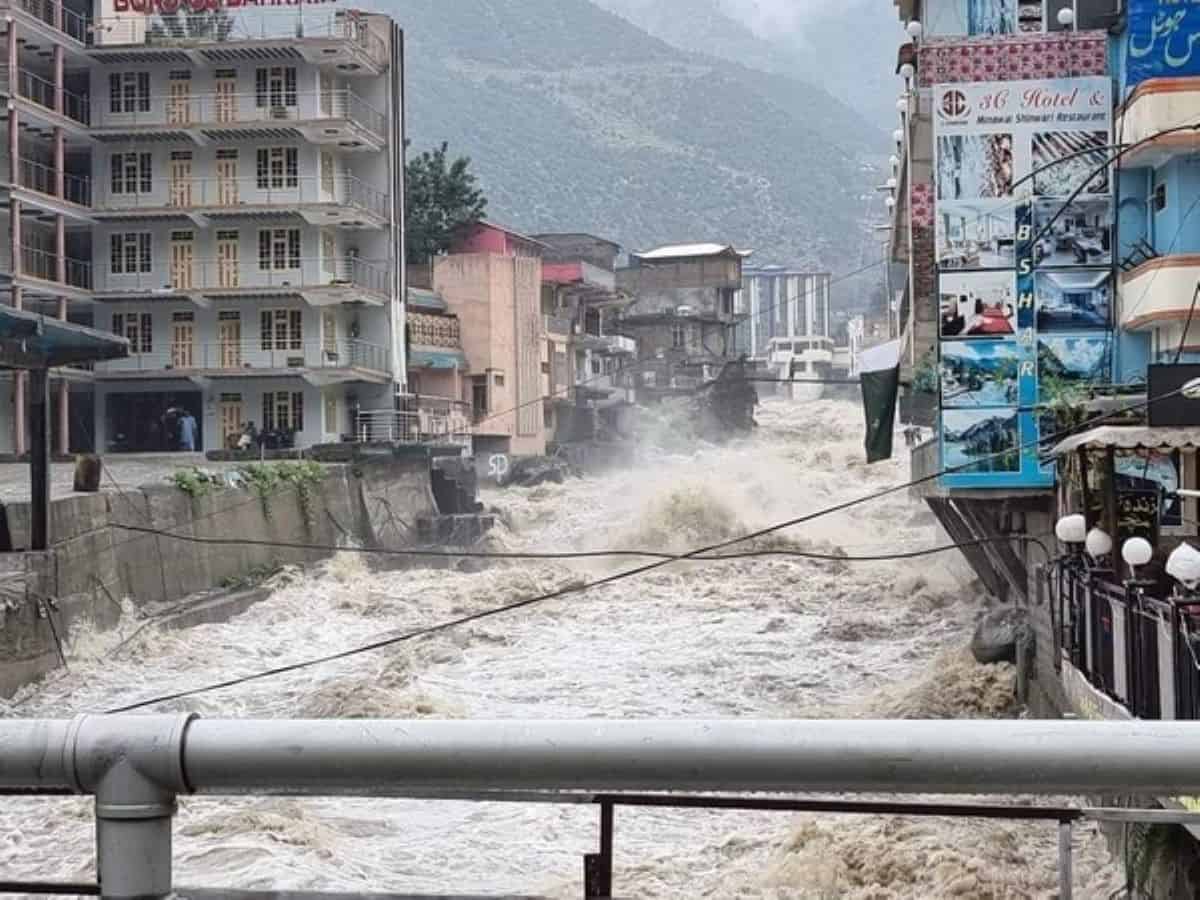
New Delhi: Pakistan is witnessing unprecedented monsoon rain causing devastating floods in the country. According to reports, the heavy downpour causing flash floods and landslides has claimed more than 1,000 lives and rendered 1 million homeless.
Large areas remain submerged with destroyed buildings, roads, railway tracks and bridges, affecting almost 33 million people in the country. According to the Pakistan Meteorological Department, the country has witnessed the highest amount of rainfall this year since 1961.
Floodwaters have created a major humanitarian crisis in the country. International community has come forward to provide help.
Pakistan has started receiving aid from different countries and the UN.
Prime Minister Narendra Modi also expressed concern over devastation caused by the floods in Pakistan.
CVoter-IndiaTracker conducted a nationwide survey on behalf of IANS to know people’s opinion about India providing help to the neighbouring country.
The survey revealed that people were divided in their opinion.
During the survey, while 43 per cent respondents said that India should provide help to Pakistan the way it did when another neighbouring country Sri Lanka was in a crisis situation, 57 per cent respondents did not agree.
During the survey, similar sentiment was noticed in the views of both the urban and rural voters.
As per the survey data, 57 per cent of urban voters and 60 per cent of rural voters believe that India should stay away from extending any help to the neighbouring country.
At the same time, 47 per cent of urban respondents and 40 per cent of rural respondents spoke in favour of sending relief material and aid.
Views of respondents from different age categories were also divided.
Notably, during the survey, while a bigger proportion, 56 per cent, of respondents in 18-24 years age category and 56 per cent above 55 years of age expressed their views in favour of providing help to Pakistan, a large proportion, 56 per cent, of respondents from 25-34 years age category and 58 per cent respondents in the age group of 35-44 years spoke against it.



